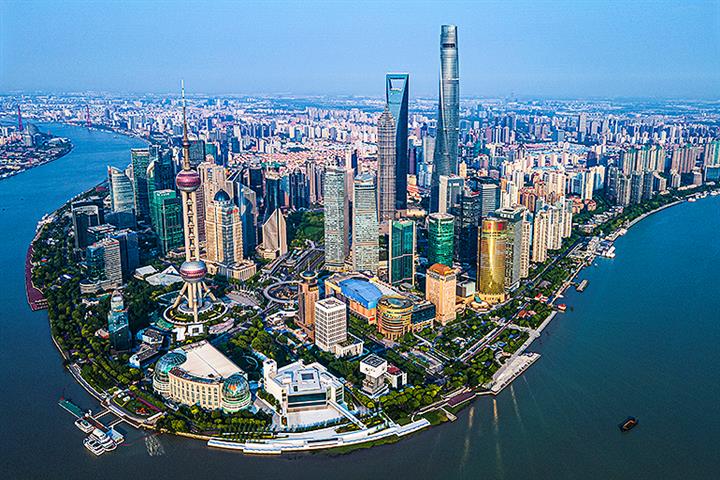 Shanghai to Promote Innovative Fields of Manufacturing, Health, Energy
Shanghai to Promote Innovative Fields of Manufacturing, Health, Energy(Yicai Global) Oct. 12 -- Shanghai has issued a series of plans to accelerate the development of transformative industries including high-end manufacturing, energy, and healthcare.
The eastern city intends to cultivate a group of enterprises and talents with global influence in forward-looking areas including space and new materials and intelligence by 2030, based on documents released recently. The related output value should reach about CNY500 billion (USD69.7 billion).
Shanghai's industrial level and quality are steadily improving, Tao Chuanliang, executive vice president of CCID Shanghai Advanced Manufacturing Research, said to Yicai Global. The city is leading in scale and technology in integrated circuits, core energy equipment, marine offshore equipment, and industrial robots, breaking through many technical barriers for China and playing a huge role in strengthening the domestic industrial chain, Tao added.
By 2030, Shanghai will build five future industry clusters and about 15 future industry pilot areas, according to the documents. It will develop about 100 core components, launch about 100 high-end products, and form about 100 Chinese industry standards, promoting industrial integration.
These five industry clusters will involve technologies such as brain-computer interface, biosecurity, gene and cell therapy, quantum computing, sixth-generation wireless networks, advanced nuclear energy, as well as aerospace.
The city proposes increasing financial support for the development of high-end manufacturing. For example, the government will continuously release key steps of application scenarios in the fields of artificial intelligence, 5G, and industrial Internet. It will support chosen demonstration projects with no more than 20 percent of the investment or up to CNY8 million (USD1.1 million). Shanghai-based innovative drug developers can receive up to 30 percent of the required investment or up to CNY20 million (USD2.8 million).
The economic hub encouraged the market to subsidize consumption, cultivate demand, and improve talent services and financing support. It suggested that market access in emerging industries should be moderately relaxed. Policy innovation should be deepened to reduce the burden of research and development talents.
Shanghai will rely on various social entities to construct future industry research institutes, around five future technology institutes, and 15 future industry innovation centers, the papers show.
Editor: Emmi Laine, Xiao Yi